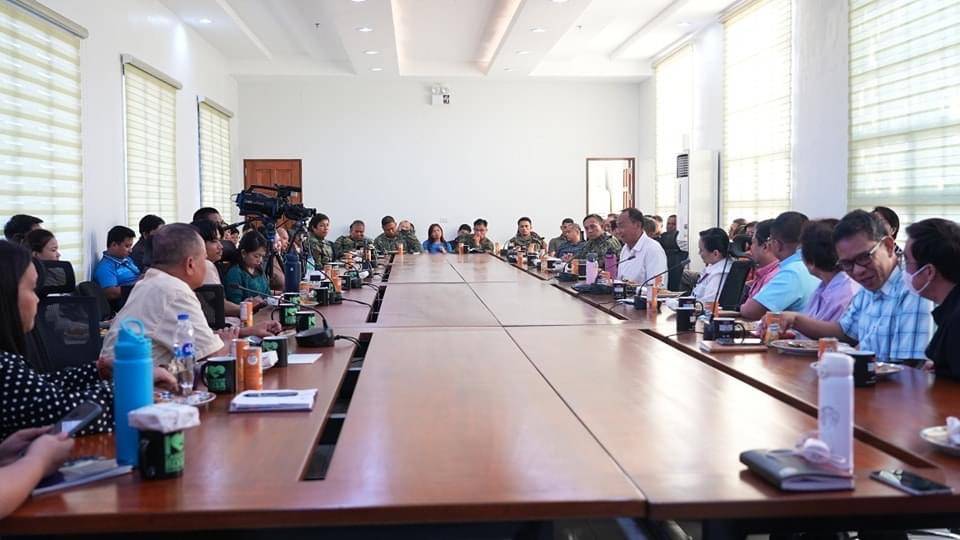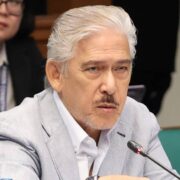Cagayan school execs assert foreigners are ‘real students’

TUGUEGARAO CITY—Officials of Cagayan province’s higher education institutions asserted that the influx of foreign university students, mostly from China, is part of their internationalization program, which they said was in line with the country’s globalization efforts.
University educators in Cagayan, in a forum at the provincial capitol on Tuesday, refuted claims that Chinese students studying in the province are not legitimate.
Earlier, Cagayan Rep. Joseph Lara called for a House inquiry amid the increase of Chinese and other foreign students, estimated to reach about 4,000, studying in Cagayan Valley who are allegedly posing a threat to the country’s security.
Dr. Jeremy Godofredo Morales, focal person for foreign relations at Saint Paul University Philippines (SPUP), said their foreign students from China, Korea, Japan, Timor-Leste, Indonesia, Vietnam, India, Nigeria and America are “real students” who are enrolled in various courses, such as nursing, civil engineering and graduate school.
“We are embracing unity amid cultural diversity in order to allow students to become closer with one another. We have this international students’ integration program,” Morales said.
He said that government officials could “easily contact” the police, military and even the national intelligence agencies to verify if the students they admit to the university were involved in any illegal or criminal activities.
“The students went through a strict [admission] process,” Morales stressed.
Due diligence
He added: “SPUP has always been very careful in terms of accepting foreign students. We really do due diligence when there are foreign students applying to us and most importantly, they have to submit documents that are required by Executive Order No. 285 and also enshrined in joint memorandum order No. 1 series of 2017.”
While disappointed by reports that the government was investigating their foreign students, the official assured that this has yet to negatively affect the students.
According to Morales, the universities will continue to promote Tuguegarao City and Cagayan globally as centers of quality education.
“We are happy to share Tuguegarao City [and] Cagayan Province with the world. So, we’re happy that we are helping put our city and our province on the world map because foreign students have always been going to different cities in the Philippines. So, why not come to Tuguegarao City. Just like what our governor has been saying, we have the right to do so because we have the best universities and colleges in the province,” he said.
Fr. Macwayne Maniwang, University of Saint Louis Tuguegarao (USLT) president, said the recently signed memorandum of understanding between USLT and an institution in China is “a big step” in staying competitive with other institutions in the country.
Globalization
He emphasized the importance of pursuing such opportunities in other countries to remain aligned with the trend of internationalization through globalization.
Dr. Christian Guzman, president of the Medical Colleges of Northern Philippines, said the Commission on Higher Education’s approval of its internationalization program in universities could be considered a positive advancement in the education sector.
“It only means that the quality of education in the country is globally comparable, and because of this, the Philippines is more recognized, so foreign students flock to our country,” he added.
According to Dr. Esther Susan Perez-Mari, University of Cagayan Valley president, universities are focusing on the application and institutionalization of the internationalization program as part of the education road map.
She said government officials must not engage in racial discrimination “as the primary goal and commitment of the universities is to provide quality education to all who wish to learn and study in the country.”
Mari said they also wanted to ensure the safety of their students and discrimination against foreign students should not be a reason that the services would be affected by those who only wanted to learn.
“Our purpose is to educate. There are agencies that are concerned with safety and security, and of course we are also curious about what they have to say because at our university, we want all our students to be safe,” said Mari. INQ
















